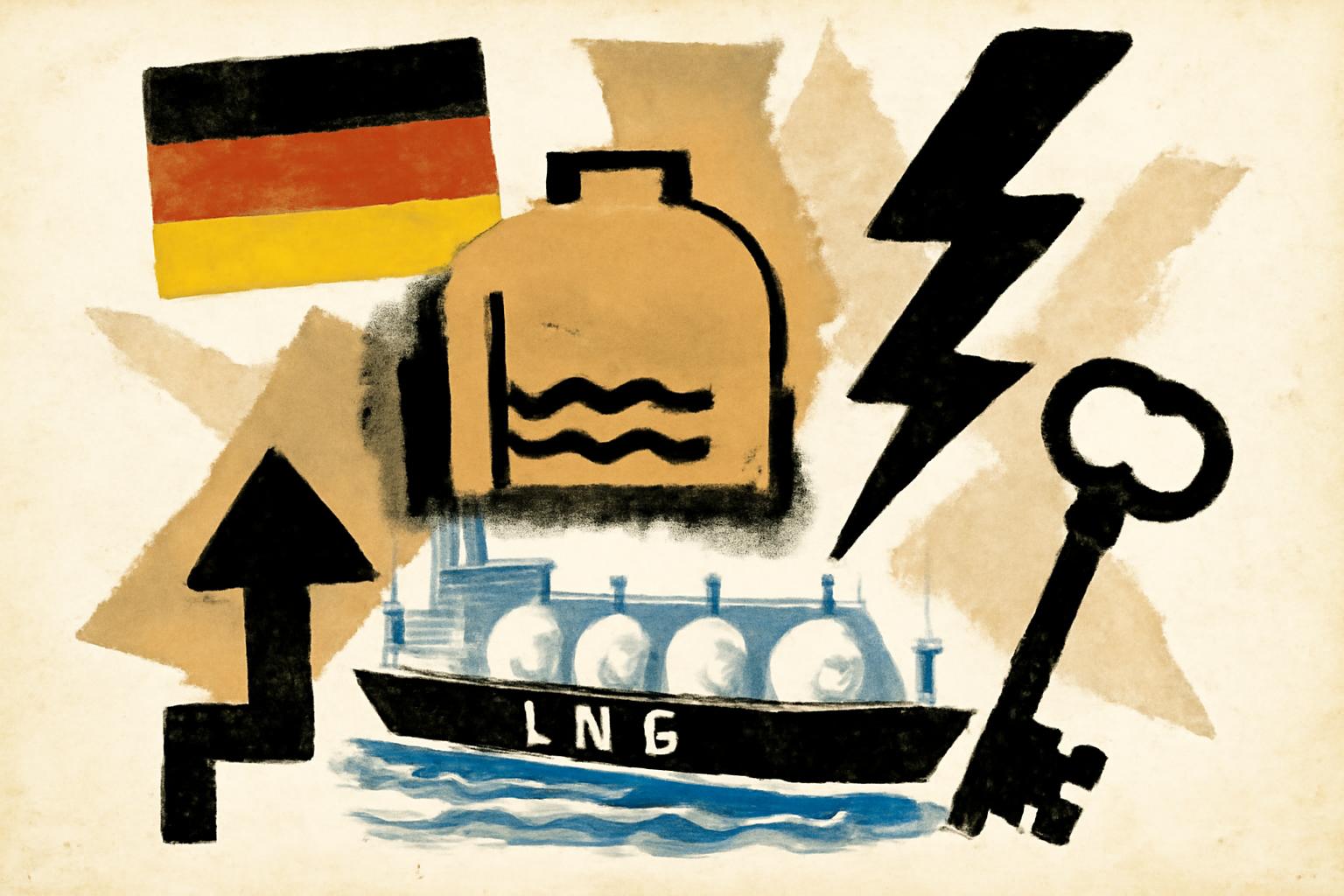Germany’s gas storage sits lean for the season: the big Rehden site is largely empty, about 80% unused, and overall storage around 65% on August 11, well shy of the 2022–2024 levels. Neighbors aren’t in the same boat—France, Poland near 80%, Austria 77%, Belgium 92%—and the Greens warn of a chilly winter threat to supply. Yet the government and the Bundesnetzagentur shrug it off as manageable. They point to four floating LNG terminals that let imports flow year‑round, reducing the appeal of filling storages. High gas prices have kept some providers from locking in gas, but the industry still expects storage targets to be surpassed and insists the system remains stable.
The reality is not a dramatic shortage waiting to erupt, but the grown‑up consequence of a market that has been steered away from prior commitments and toward flexible import channels. Hayek teaches us to distrust the illusion that centralized prediction can outpace dispersed knowledge. The price system, the willingness of firms to strike contracts, and the ability to reroute supply in real time are what actually signal scarcity and coordinate action. The floating LNG terminals are a quintessential example of spontaneous order: private initiative, not bureaucratic fiat, delivering the capacity to adapt to changing conditions. When the state extols “no acute danger,” it’s often because it’s measured in political terms, not in the terms of actual prices and incentives that govern supply, storage, and throughput.
Nozick would warn that any attempt to guarantee “security” by coercively managing gas allocations or by coercive pricing is a violation of rights. The entitlement framework rests on just acquisition, voluntary transfer, and protection of property. If storage facilities, pipelines, and LNG terminals are privately owned, then their use should be governed by consent, contracts, and market exchange, not by arbitrary state decrees or emergency powers that curtail freedom of contract, subsidize one interest, or dilute ownership. A minimal state’s true job is to enforce rights and contracts, not to micromanage energy security through top‑down planning or compelled “solutions.” When officials claim there is no risk while defending active planning measures, they reveal the paradox of dual sovereignty: the state claims safety by fiat while denying the market’s method of risk assessment through prices and property rights.
Rand would push further: value flows from rational self‑interest and productive work under the protection of individual rights. The Greens’ alarmism and the government’s assurances are two sides of the same coin—both leverage fear to justify interventions that curb voluntary exchange and investment. Energy security is not a matter of bureaucratic guarantees or population‑level austerity; it is the result of a robust, competitive market where private actors own resources, compete in storage and transport, and respond to price signals. When storage is underfilled, that is not a moral indictment of markets but a sign that the market has found a way to reshuffle risk through flexible import capacity and private contracts. The impulse to “shore up” storage through command economies would only deter investment, distort incentives, and ultimately make households and firms less secure by throttling the very mechanisms that adapt to scarcity.
What to take away from this from a libertarian standpoint: reduce the state’s footprint in energy, stop pretending the state can neatly guarantee supply through coercive measures, and embrace the free interplay of property rights, contracts, and competition. Privatize or at least sunset state monopolies and subsidies tied to storage and distribution; expand private capacity for LNG imports; remove price controls and government‑imposed targets that dampen the signaling power of markets. Let the price be the principal instrument for allocating gas, storage, and risk. Allow firms to enter and exit markets, to own and trade storage and terminals, and to form voluntary agreements with customers and exporters. In Hayek’s terms, do not replace dispersed knowledge with top‑down assurances; in Nozick’s terms, do not violate property rights in the name of collective security; in Rand’s terms, do not retreat from rational self‑interest into coercive collectivism for the sake of a questionable safety net. The only sustainable form of energy security is freedom in action, free exchange, and the disciplined use of property rights, not a maze of state guarantees that choke innovation and penalize voluntary cooperation.
